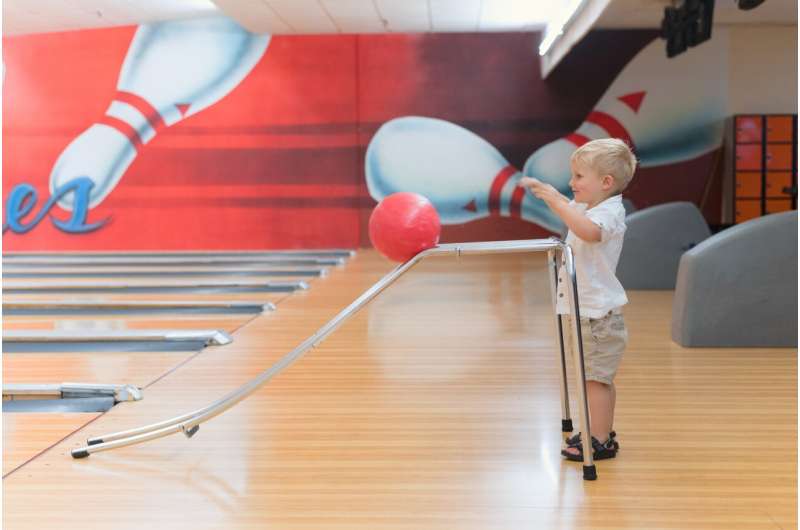This article has been reviewed according to Science X's editorial process and policies. Editors have highlighted the following attributes while ensuring the content's credibility:
fact-checked
trusted source
written by researcher(s)
proofread
Education and understanding is vital when tackling rising reports of harmful sexual behavior by children

An analysis of data from 42 police forces across England and Wales has found that over half of the 106,984 child sexual abuse cases in 2022 involved reported offenses by young people aged between ten and 17. This is a rise of 7.6% from 2021.
The report, published by the National Policing Vulnerability Knowledge and Practice Program, also highlighted that child sexual abuse and exploitation within the family was the most commonly reported form of abuse, with parents and siblings the most common relationships involved.
Ian Critchley, the National Police Chiefs' lead for child protection, has said that parents need to have "uncomfortable conversations" with their children. Conversations like this are extremely important. But unfortunately the reality of understanding and addressing this behavior is much more complex.
Learning and understanding
We need to understand what children and young people believe they are doing when they are engaging in problematic and harmful sexual behavior, and where they have got these ideas from. And we need to provide them with the education to understand sexuality and consent, and the safety and opportunity to discuss their concerns.
It is flawed to assume that harmful sexual behavior by children and young people is the result of a rational choice, or that they are fully informed about what they are doing. What's more, young people may not have a clear sense of right and wrong when it comes to sexual behavior and may lack understanding about moral and sexual boundaries.
This in no way devalues the harm and trauma experienced by victims. However, it is important to understand in order to tackle this rise in reports of sexual offenses carried out by young people.
We have undertaken research in the area of sibling sexual abuse, which is often carried out by a child under the age of 18. Professionals such as social workers may be inadequately prepared to deal with sibling sexual abuse. Often, it sits within a wider form of family dysfunction, in which those displaying the harmful behavior may themselves be experiencing abuse.
The response to children under the age of 18 who are displaying harmful sexual behavior needs to include compassion. This allows them to recover from their behavior and grow as people. These young people may have faced difficult and traumatic experiences.
Good education
Education is vital here—at school, at home, in the community—to help young people understand and respond to harmful sexual behavior. Young people consistently tell educators that what they are learning in relationships, sex and health education is not enough and they are being taught things they already know.
Young people need education that builds on their knowledge, and this can only be gathered by asking them. They want support and education from robust and trusted sources. This includes learning about harmful sexual behavior and pornography in a safe environment.
What's more, good relationships and sex education helps young people to recognize when they are being abused and also creates safe spaces where they feel that they can report abuses against them. Research indicates that women who received inadequate sex education were more likely to have experienced sexual abuse.
A quarter of the offenses in the report were related to the taking, making and sharing of indecent imagery of children. This continues to be a growing area of concern. It is highly likely that young people will see pornographic content and receive unwanted images at some point before they get to 18.
While the legal age of consent in the UK is 16, sending and receiving images of under 18s is illegal. This becomes complicated when this is happening between two sexually active, consenting, 17-year-olds, for example. It is not as simple as a parent or teacher saying "just don't do it". While police are encouraged to take a "common sense" approach to behavior like this, this gray area can make it hard to distinguish normal sexual behavior from exploitation.
Of course, young people should be held accountable for their behavior. However, we must also hold ourselves, our communities and societies accountable for the education and social skills we have provided them with to navigate these issues.
Provided by The Conversation
This article is republished from The Conversation under a Creative Commons license. Read the original article.![]()


















